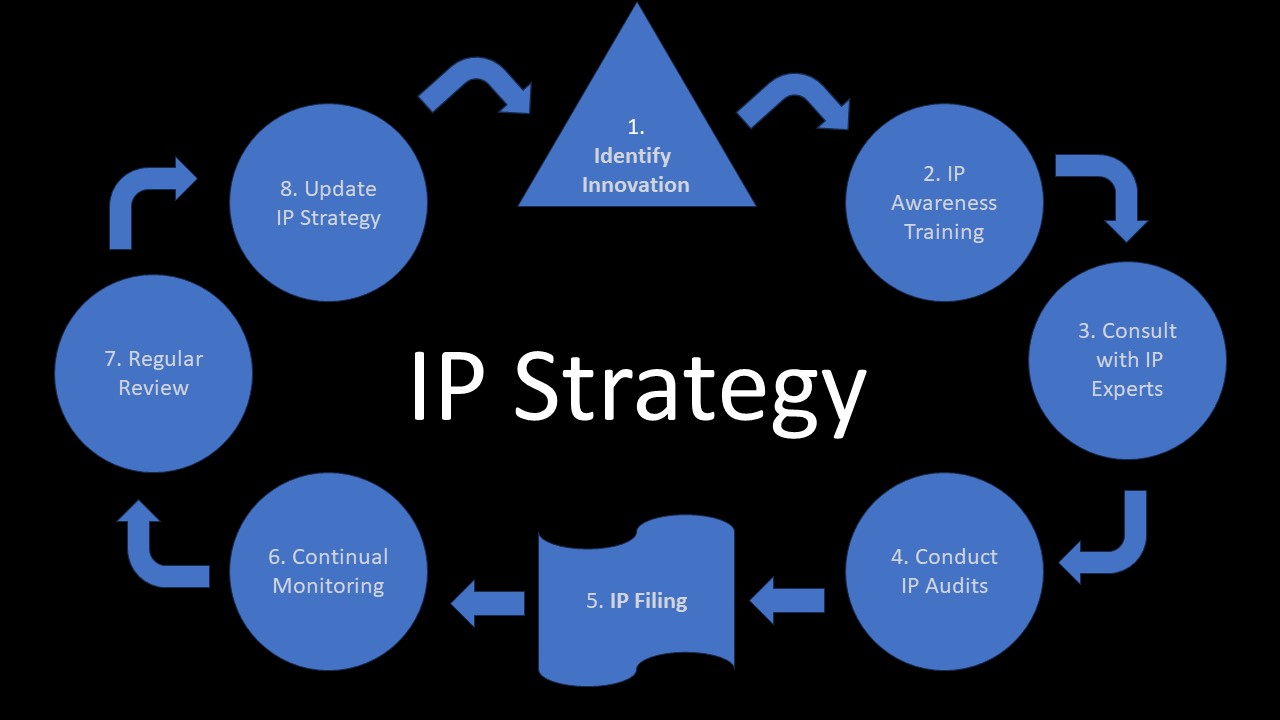Overcoming Pitfalls and Fostering Innovation
Understanding Intellectual Property (IP) Importance
Understanding the importance of a solid Intellectual Property (IP) strategy is a pivotal element in today’s business world, yet many organizations, particularly startups, stumble when it comes to implementing it effectively. The urgency for rapid growth, product development, and market reach often take precedence, and IP protection is inadvertently relegated to the background. However, overlooking the importance of IP protection leaves the door open for competitors to freely replicate or modify a business’s innovations, undermining the competitive position.
Common Pitfalls in IP Strategy
Three main challenges often stand in the way of businesses when it comes to forming a robust IP strategy.
Firstly, a significant lack of awareness exists about the various types of IP protections available. Patents, trademarks, copyrights, and trade secrets each offer different kinds of protections and apply to different forms of innovation. Understanding what each of these protections offers and how they can benefit a business is crucial for leveraging IP effectively.
Secondly, misconceptions about the cost of IP protection often deter businesses, especially startups operating on a limited budget. It’s important to note that while securing IP does involve some cost, the potential long-term costs of not protecting valuable IP could be far higher. The loss of exclusivity over a product or service could result in immeasurable losses, far outweighing the initial investment required for securing IP.
Lastly, timing issues present another hurdle. In many instances, particularly in the case of patents, the rights go to the first to file rather than the first to invent. Procrastination or complacency in registering IP can lead to a business losing the opportunity to protect its crucial innovation.
Establishing an Innovation Identification System
The first step towards a robust IP strategy is to pinpoint what makes your business unique. This can be a game-changing product, a novel process, or an exceptional service you offer. Encouraging a company culture where all team members recognize and value innovation is critical. They should be trained to identify potential IP from their daily tasks, meetings, brainstorming sessions, and customer feedback. This nurtures an environment that doesn’t just protect existing IP but also fuels the birth of new, potentially patentable ideas.
Instilling IP Awareness through Training
Once your team understands the value of innovation, the next step is to ensure they understand the importance of protecting it. Regularly organized IP awareness training sessions can help demystify complex IP concepts and make them more accessible to everyone, irrespective of their role. These sessions should not just cover the ‘what’ and ‘why’ of IP, but also the ‘how’ – how to identify potential IP, how to document it, and how to ensure its protection.
Engaging IP Experts for Consultation
Consulting with IP experts early in the innovation process can streamline your IP strategy. These professionals have a deep understanding of the complexities of IP law and can help you navigate through various protection options such as patents, copyrights, trademarks, or trade secrets. Their insights can provide a roadmap for your IP strategy, helping you avoid common pitfalls, saving time and resources, and optimizing protection for your innovation.
Conducting Regular IP Audits
In the ever-evolving landscape of a business, regular IP audits are crucial. These systematic reviews of your company’s IP assets help track all potential and existing IPs, ensuring nothing slips through the cracks. An IP audit should identify any unprotected innovations, assess the current state of existing IP (like the status of patent applications), and identify potential infringement risks. This helps in taking timely action, whether it involves filing for new patents or enforcing existing ones.
Streamlining IP Filing Process
Based on the insights gained from your IP audits and expert consultations, you can proceed to file for the appropriate type of IP protection. Filing for IP protection can be a complex process, often requiring specialist skills. Ensure you’re following all necessary protocols, documentation, and deadlines to prevent any potential challenges or rejections.
Implementing Continual Monitoring Practices
In the realm of IP, staying vigilant is more than a best practice—it’s a necessity. Implement systems that allow for continuous market monitoring for possible IP infringements and keep an eye on your competitors’ IP developments. This will enable you to react swiftly to potential threats, ensuring that your business remains at the forefront of innovation.
Committing to Regular Review and Update of IP Strategy
An effective IP strategy isn’t set in stone. It should be flexible, adapting to the changing needs of your business, shifts in the market, and amendments to IP law. Regular reviews of your IP strategy can help identify any gaps, anticipate future issues, and refine the strategy as needed. It is important to remember that an IP strategy is not an unnecessary expense, but a key investment in the future of your business, strengthening its competitive positioning and driving its growth.
The Proactive Habits for IP Success
By integrating these proactive habits into your business operations, you can effectively safeguard your innovation, fortify your market position, and fuel your growth trajectory.
In conclusion, remember that innovation isn’t just about creating something unique; it’s also about protecting it. In the competitive business landscape of today, a well-thought-out and robust IP strategy is not just a nice-to-have, but a must-have. So, stay innovative, stay protected.

